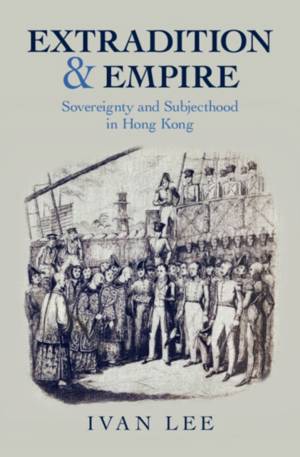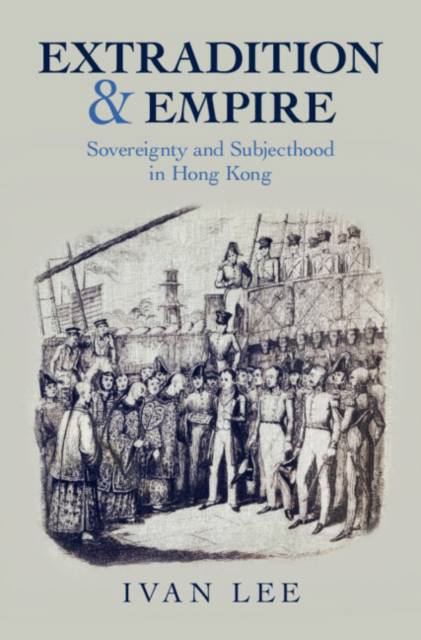
- Afhalen na 1 uur in een winkel met voorraad
- Gratis thuislevering in België vanaf € 30
- Ruim aanbod met 7 miljoen producten
- Afhalen na 1 uur in een winkel met voorraad
- Gratis thuislevering in België vanaf € 30
- Ruim aanbod met 7 miljoen producten
Zoeken
Omschrijving
In the first book-length study of the imperial history of extradition in Hong Kong, Ivan Lee shows how British judges, lawyers, and officials navigated the nature of extradition, debated its legalities, and distinguished it over time from other modalities of criminal jurisdiction - including deportation, rendition, and trial and punishment under territorial and extraterritorial laws. These complex debates were rooted in the contested legal status of Chinese subjects under the Opium War treaties of 1842-43. They also intersected wider shifts and tensions in British ideas of territorial sovereignty, criminal justice and procedure, and the legal rights and liabilities of British subjects and alien persons in British territory. By the 1870s, a new area of imperial law emerged as Britain incorporated a frontier colony into an increasingly territorial and legally homogenous empire. This important perspective revises our understanding of the legal origins of colonial Hong Kong and British imperialism in China.
Specificaties
Betrokkenen
- Auteur(s):
- Uitgeverij:
Inhoud
- Aantal bladzijden:
- 260
- Taal:
- Engels
- Reeks:
Eigenschappen
- Productcode (EAN):
- 9781009356930
- Verschijningsdatum:
- 3/07/2025
- Uitvoering:
- Hardcover
- Formaat:
- Genaaid
- Afmetingen:
- 152 mm x 229 mm
- Gewicht:
- 517 g

Alleen bij Standaard Boekhandel
+ 403 punten op je klantenkaart van Standaard Boekhandel
Beoordelingen
We publiceren alleen reviews die voldoen aan de voorwaarden voor reviews. Bekijk onze voorwaarden voor reviews.







